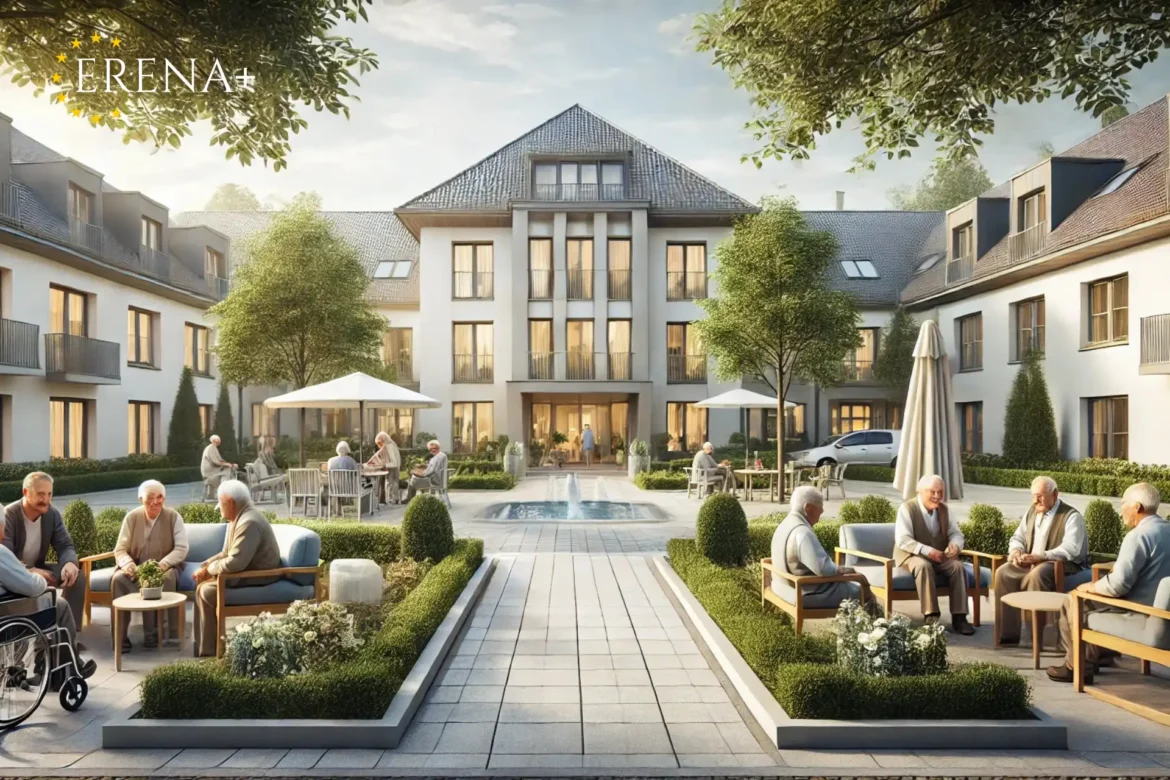Germany is renowned for its advanced social security system and high standard of living. As the population ages, the demand for comfortable living options and professional care for the elderly has grown. In this article, we will explore the different types of senior housing available in Germany, their features, benefits, costs, and recommendations for choosing the best option.
Types of Senior Housing
Germany offers a variety of senior housing options tailored to different levels of independence and care needs. Below are the main categories:
1. Independent Living
Many elderly individuals prefer to remain in their own homes or apartments. Support services are available to assist with daily tasks such as cleaning, meal delivery, and medical care. These services allow seniors to maintain independence while accessing necessary support.
Benefits:
• Living in a familiar environment
• Access to individual assistance as needed
• Minimal disruption to daily life
Cost: From €100 to €500 per month for additional services.
2. Senior Apartments (Seniorenwohnungen)
These residential complexes are designed specifically for elderly residents, featuring barrier-free access, elevators, and safety rails. They often include shared spaces for social activities and events.
Benefits:
• Safe and convenient infrastructure
• Opportunities for social interaction
• Availability of additional services
Cost: Rent ranges from €400 to €1,000 per month, with additional services charged separately.
3. Nursing Homes (Pflegeheime)
These facilities provide comprehensive care for seniors who require constant medical attention and assistance with daily activities. They employ professional nurses and doctors and offer social and cultural programs.
Benefits:
• 24/7 care
• Comprehensive medical support
• Social and recreational activities
Cost: From €2,000 to €4,000 per month, with some costs covered by long-term care insurance.
4. Shared Housing (Wohngemeinschaften)
Groups of seniors live together in a shared house or apartment, splitting responsibilities and expenses. This option is popular among those who wish to retain independence while enjoying the benefits of community living.
Benefits:
• Social support within the group
• Cost savings
• Joint decision-making for daily matters
Cost: From €500 to €1,500 per month.
5. Assisted Living (Betreutes Wohnen)
This option combines independent living with access to professional help when needed. Seniors live in private apartments or homes while having access to care staff and support services.
Benefits:
• Balance between independence and safety
• Convenient infrastructure
• Access to medical professionals
Cost: From €800 to €2,000 per month.
How to Choose the Right Option
Choosing the right senior housing depends on several factors, including physical and mental health, independence level, and financial capacity. Here are key considerations:
1. Health and Independence:
• Fully independent seniors may opt for independent living or senior apartments.
• Those with chronic illnesses or high care needs should consider nursing homes or assisted living.
2. Financial Capacity:
• Costs vary widely depending on the type of housing and region. For instance, senior apartments are generally less expensive than nursing homes.
• Consider the coverage provided by long-term care insurance (Pflegeversicherung).
3. Social Preferences:
• Socially active individuals may prefer shared housing or senior complexes with communal spaces.
• Those seeking privacy might choose individual apartments with in-home support services.
Advantages of Senior Housing in Germany
1. High Quality of Care: All types of housing ensure access to professional medical staff and qualified caregivers.
2. Safety: Facilities and residential complexes adhere to strict safety standards, including barrier-free access and emergency response systems.
3. Social Engagement: Programs and activities help maintain social connections and mental well-being.
4. Financial Support: Long-term care insurance covers part of the costs, making housing options more accessible.
5. Personalization: A wide variety of options allows seniors to find housing that suits their individual needs and preferences.
Financial Considerations
Housing costs vary depending on the type of accommodation. For example:
• Independent Living: From €100 to €500 per month for support services.
• Senior Apartments: From €400 to €1,000 per month.
• Nursing Homes: From €2,000 to €4,000 per month.
• Shared Housing: From €500 to €1,500 per month.
• Assisted Living: From €800 to €2,000 per month.
It is important to note that Pflegeversicherung helps cover some costs, including medical care and services.
Conclusion
Germany’s senior housing system offers a diverse range of options tailored to varying levels of independence and care needs. From independent living to 24/7 care in nursing homes, every senior can find a suitable solution. The key is to consider personal preferences, health conditions, and financial resources to ensure the highest quality of life in old age.
Senior Housing in Germany: Options and Benefits
1.2K
previous post

